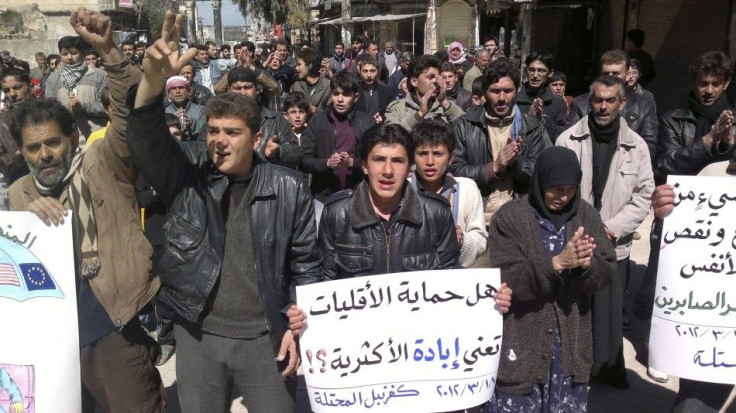Syrian Secret Security Documents Leaked To Al Jazeera, Show Assad Out Of Touch

On Monday, Al Jazeera announced that it had gained access to hundreds of pages of confidential documents prepared for Syrian regime officials, including President Bashar al-Assad.
The papers reveal security plans and suppression strategies that the Syrian government has used to deal with anti-government protests over the last year.
Abdel Majid Barakat, formerly a trusted official with the regime, sneaked the papers out of Damascus and into Istanbul. Before his escape, Barakat had been working as a mole from a secret joint crisis management cell, reports Al Jazeera. His job was to coordinate information coming from various intelligence agencies throughout Syria.
He had been leaking vital information until a month ago, when other officials became aware that information was being compromised. Before they could track him down, Barakat collected some documents in a bag that he taped to his back under a jacket. He then made it safely into Turkey and handed the documents to Al Jazeera.
The news organization has been investigating the papers for several days, and reporters are very confident that they are legitimate.
The documents, the latest of them now a month old, suggest a growing fear on the part of the regime that protesters might infiltrate Damascus. They contain explicit orders that security forces stop any protesters from getting into the capital.
Those efforts have apparently failed; recent days have seen bombings in Damascus, and on Monday, armed rebel forces entered Mezzeh, a wealthy and well-protected area of the capitol, and engaged in a reportedly intense battle there. Mezzeh is close to a military airport and just south of a mostly Alawite neighborhood where many pro-regime security forces live.
The leaked documents also contained a presidential decree that any demonstration in a public square would be considered a riot, and participants could be jailed. That policy was made apparent on Sunday, when a group of more than 150 gathered in central Damascus to call for nonviolence and many were reportedly beaten and arrested by security officers.
Other documents suggested that security chiefs were deliberately misleading Assad by downplaying the severity of the situation. Security chiefs paint [a] beautiful picture in their reports, said Barakat. They ignore many substantial facts on the ground, simply to boost the president's morale.
This revelation may explain disturbing instances of detachment and levity in Assad's personal emails, which the Guardian leaked to the public on Wednesday. In December, for instance, the president shared a video mocking Arab League monitors for failing to spot regime military forces. The clip uses toy race-cars to represent tanks, and a stack of cookies to represent a falling building.
The documents also contained detailed plans for suppressing protests in Aleppo and Idlib, explicit orders to give funding and support to regime supporters, reports of spy missions to keep an eye on Arab League monitors, and warnings about foreign countries offering asylum to defecting Syrian officials.
Any person reading these reports will be shocked, will realize that Syria is living a true crisis: killings, criminality and suppression of protesters, said Barakat.
© Copyright IBTimes 2024. All rights reserved.












